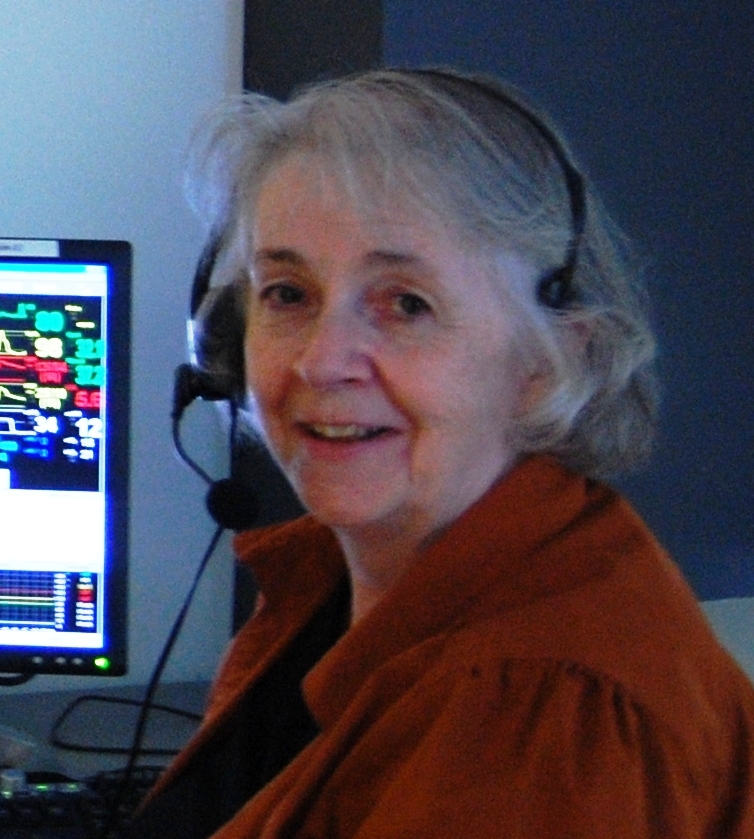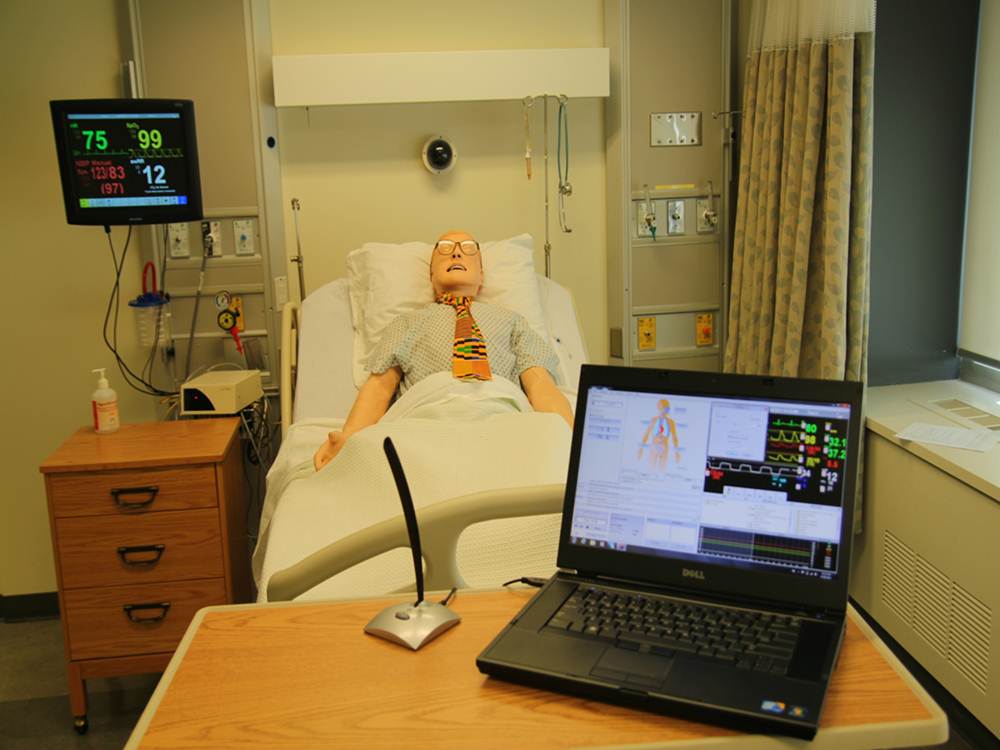 Professor Maureen Barry may be a nurse-educator first and foremost, but she is also one the University of Toronto’s, and Canada’s, foremost educational technology pioneers. She is a big fan of hands-on learning, and her simulation program is the premiere example of that approach.
Professor Maureen Barry may be a nurse-educator first and foremost, but she is also one the University of Toronto’s, and Canada’s, foremost educational technology pioneers. She is a big fan of hands-on learning, and her simulation program is the premiere example of that approach.
Professor Barry began her career in Nursing as an undergraduate student at the University of Windsor, graduating and working for fifteen years as a nurse in the intensive care unit before returning to academia to pursue graduate studies at the University of Toronto. She has also spent time nursing in Kenya and Ethiopia, and has more recently done work in Zimbabwe, South Africa, and Uganda. Barry is now the Undergraduate Program Director Lawrence S. Bloomberg Faculty of Nursing at the University of Toronto.
In her role as a nurse-educator, Prof. Barry was one of the first to introduce online learning with a learning management system and online activities, reducing the length of in-class lectures while allowing students to learn through a different medium, and eventually answer questions online as a means of preparing for an upcoming lecture. She has also worked to better engage students in class with technology through iClickers, helping to spur discussion and explore questions similar to those that could be on an exam. Barry’s emphasis on online learning was particularly helpful in allowing Nursing students to continue their education throughout the 2003 SARS crisis.
However, one of Prof. Barry’s foremost accomplishments has been her work in the development of the University’s Nursing Simulation Lab (Sim Lab), which opened in 2005-6, and her leadership of the Simulation Team. According to Barry, the use of simulations in nursing education is so important because it “forces the teacher to be very student centred, and you always have to be focused on what you want the students to learn when they develop simulations. And I love it.”
Read More About How the ITIF Helped Maureen Barry |
Walking with Prof. Barry into the Sim Lab at the Bloomberg Faculty of Nursing is a very unique experience. There are numerous hospital beds occupied by manikins, which are designed to simulate a patient’s breathing and heartbeat, with vital signs displayed on a monitor nearby and the patient’s chest rising and falling with each breath. From another room, Dr. Barry can speak to students as if she was the patient relaying her symptoms, and the lab’s participants are given various patient scenarios to work through. The simulation program even has specific manikins for babies, pregnant mothers, and children, so that Nursing students can build experience through interacting with patients of all ages. There are numerous rooms throughout the lab, including an inpatient ward, critical care unit, isolation room, and operating room. The lab even has a home care setting in one room to allow for nurses to be trained to handle situations in the community.
She places a special emphasis on the fact that the Sim Lab is a safe learning space, an area to learn without any risk to actual patients. In the Sim Lab, when certain students are going through a simulation, they are observed by other students in a room nearby, and the entire process is recorded and can later be watched by those students who participated in the simulation process. This allows them to learn from their mistakes and become better equipped to manage situations in the future. A debrief for participants always begins once the simulation scenario has ended.
According to Prof. Barry, the Sim Lab experience allows students to develop certain essential skills, including prioritization, delegation, communication, time management, and workload organization. Students even have access to an electronic health record during the simulation.
 Prof. Barry’s next major objective is to have Nursing students engage with smartphones and handheld devices when working with patients and families. She claims that she likes “to challenge students, and to stretch students to use more technology.” That includes on the job. While some Nursing students feel self-conscious against taking out a smartphone while on the job, Barry thinks that being able to do quick research to answer questions online can be invaluable to nurses in the field, and it is something that many health professionals have already come to embrace.
Prof. Barry’s next major objective is to have Nursing students engage with smartphones and handheld devices when working with patients and families. She claims that she likes “to challenge students, and to stretch students to use more technology.” That includes on the job. While some Nursing students feel self-conscious against taking out a smartphone while on the job, Barry thinks that being able to do quick research to answer questions online can be invaluable to nurses in the field, and it is something that many health professionals have already come to embrace.
Unfortunately, using smart devices up to this point is “still not so common with nurses.” Nonetheless, Prof. Barry hopes to change that. In a study that she conducted, Nursing students found that being able to use their smartphones while working was a “liberating experience,” and Barry hopes that using smart devices on the job will become a more normal practice going forward.

